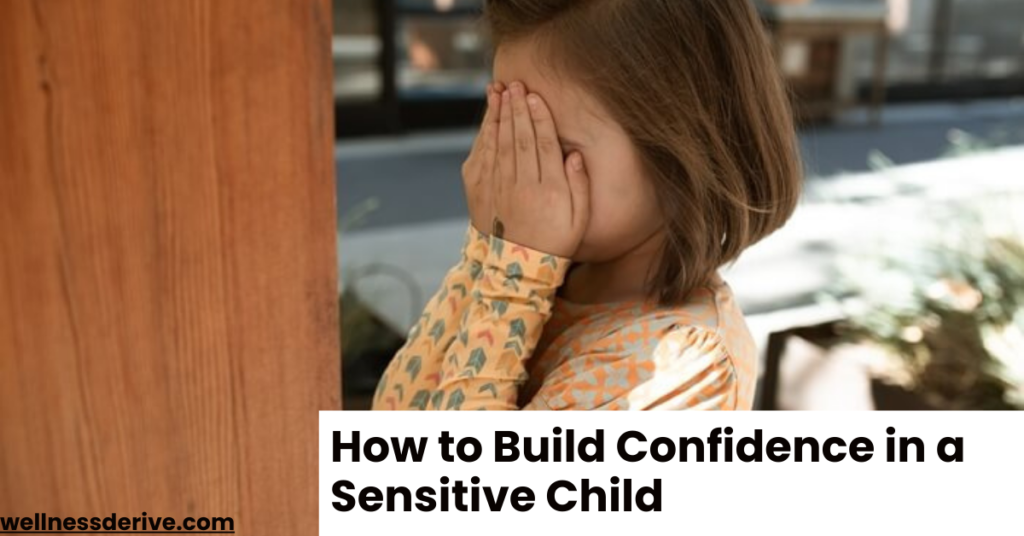Sensitive children often experience emotions deeply, making them empathetic and intuitive but sometimes more vulnerable to self-doubt. Building confidence in a sensitive child involves understanding their needs, fostering a supportive environment, and teaching them strategies to embrace their strengths.
Understanding a Sensitive Child
What Is a Sensitive Child?
A sensitive child is one who feels emotions more intensely and reacts strongly to external stimuli, such as loud noises, bright lights, or social situations. These children are often highly intuitive and empathetic, traits that can be great strengths when nurtured.
Highly Sensitive Child vs. Autism
While both highly sensitive children and children with autism may display heightened responses to their environment, they differ significantly. Highly sensitive children react emotionally to external stimuli, while autism often involves challenges with social communication and repetitive behaviors.
Traits of a Highly Sensitive Child
- Deep emotional responses
- High levels of empathy
- Overwhelm in busy or noisy environments
- Strong intuition
How to Build Confidence in a Sensitive Child
1. Acknowledge Their Feelings
Sensitive children need to feel understood and validated.
- Use phrases like:
- “I see you’re feeling upset; it’s okay to feel that way.”
- “Your feelings matter to me.”
2. Encourage Positive Self-Talk
Teach your child to replace negative thoughts with affirming ones.
- For example, change “I can’t do this” to “I can try my best.”
3. Focus on Their Strengths
Sensitive children often excel in creative or empathetic pursuits.
- Encourage activities like art, music, or community service.
- Highlight their unique abilities, such as their caring nature or attention to detail.
How to Build Resilience in a Sensitive Child
1. Teach Problem-Solving Skills
Help them approach challenges as opportunities to grow.
- Break down problems into manageable steps.
- Celebrate small wins to build confidence in tackling larger issues.
2. Gradual Exposure to Challenges
Avoid sheltering them from all difficulties. Instead, expose them to manageable challenges over time to help them adapt.
3. Model Resilient Behavior
Demonstrate calmness and positivity in difficult situations. Children often mirror their parents’ responses.
How to Help a Sensitive Child Thrive
1. Create a Safe Environment
Sensitive children feel more confident in predictable and supportive environments.
- Set routines to give them a sense of security.
- Limit exposure to overly stimulating environments.
2. Practice Mindfulness Techniques
Mindfulness can help sensitive children regulate their emotions.
- Breathing exercises: Teach them to take deep breaths when overwhelmed.
- Visualization: Encourage them to imagine a calm and happy place.
3. Avoid Labels
Avoid calling them “too sensitive” or “overly emotional,” as this can undermine their confidence. Instead, frame their sensitivity as a strength.
Common Challenges with Sensitive Children
1. Overwhelm in Social Situations
Sensitive children may struggle in large groups or noisy settings.
- Prepare them in advance by explaining what to expect.
- Offer breaks during overwhelming events.
2. Emotional Outbursts
Deep feelings can sometimes lead to meltdowns.
- Stay calm and guide them through their emotions.
- Use these moments to teach emotional regulation.
3. Fear of Failure
Sensitive children often set high standards for themselves and fear disappointing others.
- Normalize making mistakes as part of learning.
- Share examples of your own failures and how you overcame them.
Why Is My Child So Sensitive?
Sensitivity can be influenced by genetics, upbringing, and temperament. Sensitive children often have heightened awareness, making them deeply affected by their environment and relationships.
Raising a Confident, Sensitive Child
Raising a sensitive child requires patience, empathy, and intentionality. Here’s how you can support their growth:
- Celebrate Their Uniqueness: Remind them that sensitivity is a gift.
- Encourage Independence: Provide opportunities for them to make decisions and solve problems on their own.
- Provide Positive Reinforcement: Praise their efforts, not just outcomes, to help them value persistence.
Frequently Asked Questions
What Is a Deeply Feeling Child?
A deeply feeling child experiences emotions on a profound level and is often highly empathetic. These traits can lead to both strengths and challenges.
How to Deal With a Sensitive Child?
Support them by acknowledging their emotions, creating a calm environment, and teaching coping mechanisms like mindfulness or journaling.
Why Is My Toddler So Sensitive?
Toddlers often have heightened emotions as they learn to navigate the world. Sensitivity at this age is normal and can be managed through gentle guidance.
Conclusion
Building confidence in a sensitive child involves nurturing their unique traits while teaching them strategies to face challenges. By fostering resilience, celebrating their strengths, and creating a supportive environment, you can help your sensitive child thrive in any situation.
Remember, sensitivity is not a weakness—it’s a strength that, when guided, can lead to empathy, creativity, and a deep connection to the world around them.
Disclaimer: The content on Wellness Derive is for informational purposes only and not a substitute for professional medical advice, diagnosis, or treatment. Always consult a healthcare provider for medical concerns.



